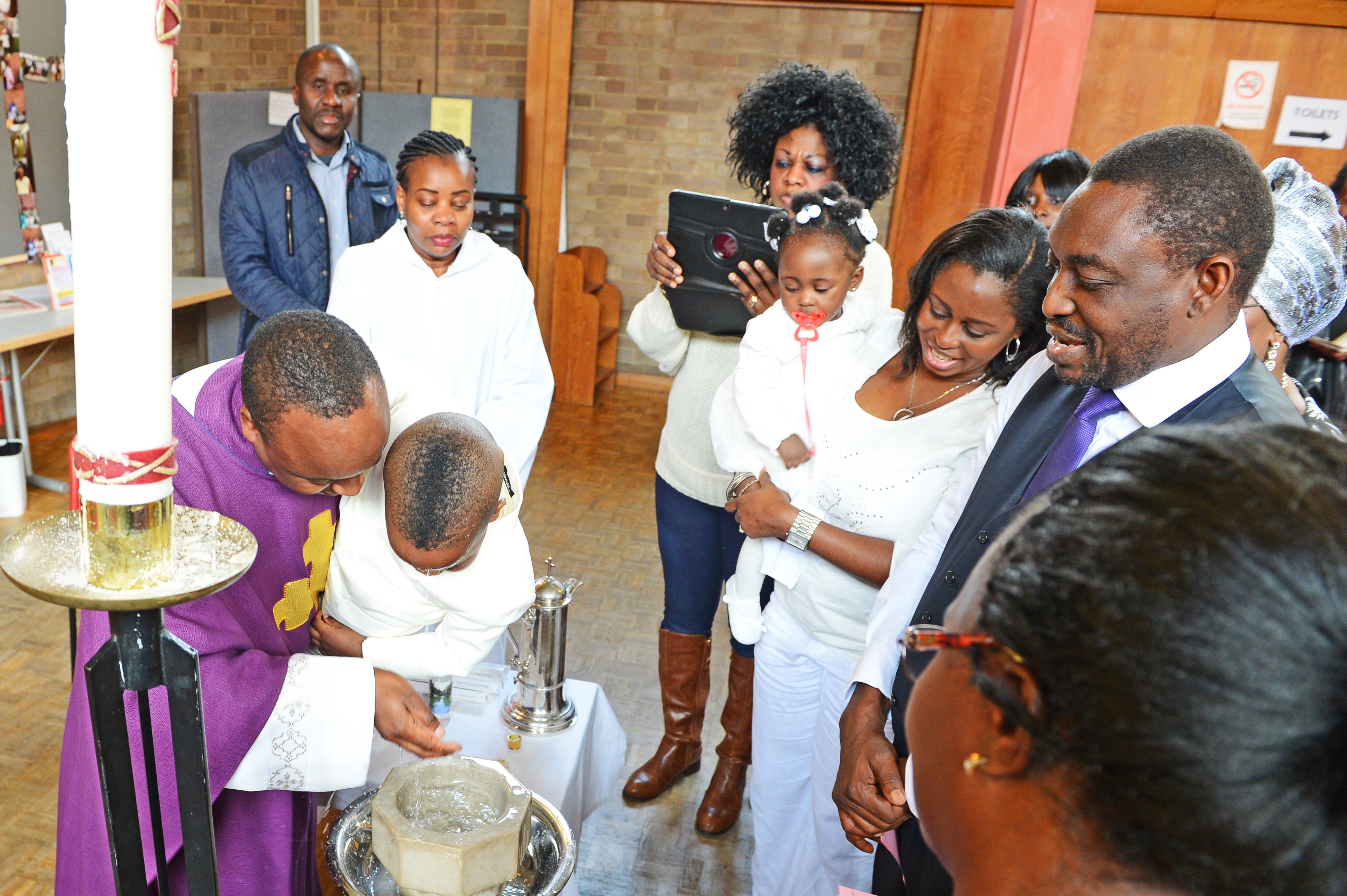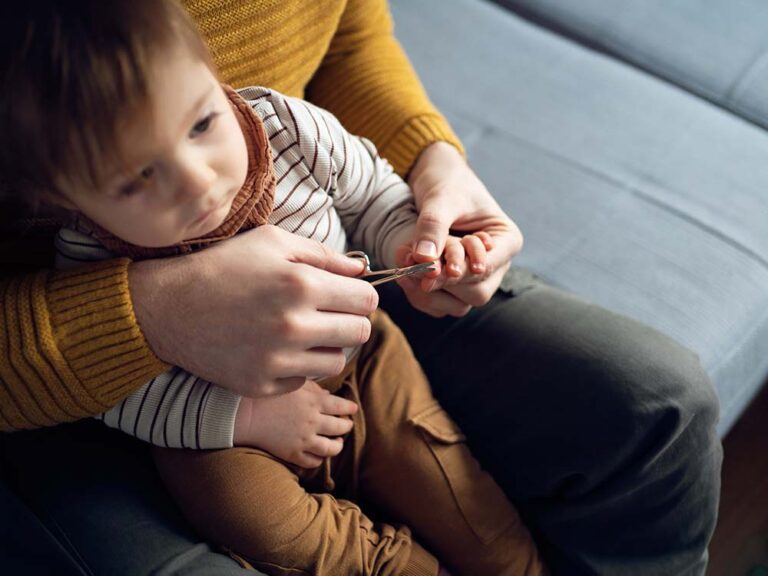How Many Godparents Can a Child Have? Discover the Ideal Number!
A child should have at least three godparents, two of the same sex and at least one of the opposite sex to your child. There is no official maximum number of godparents, but three or four is usual.
Choosing godparents is an important decision for parents, as these individuals are expected to make promises and commitments regarding the child’s faith in church. While some churches traditionally have two godparents, others may have three or more. Ultimately, the number of godparents can vary depending on personal preference and the specific customs of the church or religious institution.
It is important to consider the roles and responsibilities of godparents when making this decision.
Understanding The Role Of Godparents
In religious ceremonies, such as baptism, godparents play a significant role. They are chosen to guide the child in their spiritual journey and provide support and mentorship in matters of faith. Understanding the role of godparents is essential when selecting the right individuals for this important responsibility.
Brief Explanation Of The Role Of Godparents In Religious Ceremonies
Godparents are entrusted with the task of nurturing the spiritual development of the child. They are expected to act as role models and encourage the child to grow in their faith. During the ceremony, godparents publicly declare their commitment to ensuring the child’s religious upbringing and affirm their responsibility to guide them in matters of morality and ethics.
Importance Of Choosing Godparents For Your Child
Choosing godparents for your child is a decision not to be taken lightly. These individuals serve as an extended support system, providing guidance and imparting spiritual values. The godparents become a source of wisdom, offering advice and encouragement as the child navigates their faith journey.
By selecting godparents who are devout and practicing members of the faith, you can ensure that your child receives proper guidance in their religious upbringing. Godparents can offer a unique perspective and understanding of the faith, reinforcing the teachings they receive from their parents and the religious community.
The presence of godparents also establishes a lifelong bond between the child and these trusted individuals. They become a source of strength and support throughout the child’s life, someone they can turn to in times of need or for guidance in matters of faith.
Ensuring A Meaningful Choice
When selecting godparents for your child, it is important to consider individuals who not only share your religious beliefs but also embody the values you hold dear. Look for individuals who have a strong commitment to their faith, possess good moral character, and demonstrate a genuine interest in the well-being of your child.
Ensure that the chosen godparents are willing and able to fulfill their role, both in the immediate future and in the long term. Openly discuss expectations with potential godparents, so they understand the significance of their responsibilities and are prepared to actively participate in your child’s spiritual upbringing.
Remember, there is no specific limit on the number of godparents your child can have. The important thing is to choose individuals who are sincere and committed to fulfilling their role as guides and mentors in your child’s faith journey.
The Traditional Approach: Two Godparents
When it comes to the traditional approach, a child should have at least three godparents; two of the same sex and at least one of the opposite sex. While there is no official maximum number, three or four godparents is common.
Explanation Of The Traditional Practice Of Having Two Godparents
Traditionally, the practice of having two godparents for a child has been widely followed in various cultures and religions. This long-standing tradition is deeply rooted in the importance of having a balance of guidance and support from both male and female figures in a child’s life.
Reasons Behind This Tradition
There are several reasons behind the tradition of having two godparents. Firstly, it symbolizes the balance between the masculine and feminine energies that play a significant role in a child’s upbringing. By having a godmother and a godfather, the child receives guidance and support from both genders, allowing for a well-rounded and diverse influence. This balance is believed to bring stability and harmony to the child’s spiritual journey.
Another reason is the idea of shared responsibility. With two godparents, the burden of guiding and nurturing the child is shared between two individuals. This ensures that the child receives ample attention, love, and guidance from multiple sources, enhancing their emotional and spiritual growth.
Overview Of The Role Of Godparents In This Context
In the traditional context of having two godparents, their role goes beyond simply being present at the child’s baptism or christening ceremony. They serve as mentors, role models, and confidants throughout the child’s life. Godparents are entrusted with the responsibility of guiding the child in matters of faith, morals, and values.
Additionally, godparents often play a significant role in the child’s upbringing, providing support, advice, and unconditional love. They may act as a source of inspiration, helping the child navigate through life’s challenges and making important decisions.
Furthermore, godparents often participate in the child’s religious education, attending religious events and ceremonies with the child and actively engaging in their spiritual development. They may also take up the role of supporting the child’s parents in their journey of raising a child in accordance with their faith.
Overall, the traditional practice of having two godparents holds great significance in providing children with a solid foundation of values, guidance, and love. By having two individuals who are committed to the child’s spiritual well-being, the child is surrounded by a supportive network that fosters their growth and development.
The Inclusion Of Additional Godparents
A child should have at least three godparents, two of the same sex and at least one of the opposite sex. There is no official maximum number of godparents, but three or four is typical.
Exploring The Possibility Of Having More Than Two Godparents
In the realm of religious ceremonies, such as baptisms, godparents play a crucial role in guiding and supporting a child’s spiritual journey. Traditionally, the norm has been to have two godparents, one male and one female. However, many churches now allow for the inclusion of additional godparents, offering a more diverse support system for the child.
The question arises – how many godparents can a child have? While there is no official maximum limit, it is recommended that every child should have at least three godparents – two of the same sex and at least one of the opposite sex to the child. So, choosing three or four godparents is commonly practiced and widely accepted.
Factors To Consider When Deciding On The Number Of Godparents
When determining the number of godparents for your child, several factors come into play. It is essential to carefully consider these factors to ensure the well-being and individual attention the child receives from each godparent:
- Personal Relationships: Evaluate the depth and quality of relationships with potential godparents. Consider individuals who share a strong bond with the child and hold similar values.
- Spiritual Guidance: Assess the ability of the godparents to provide consistent support and act as mentors in the child’s religious upbringing.
- Logistical Considerations: Take into account practical aspects, such as geographic proximity and availability, to ensure regular interaction between the child and their godparents.
- Commitment Levels: Reflect on the dedication and commitment of potential godparents towards fulfilling their responsibilities and actively participating in the child’s life.
The Benefits And Drawbacks Of Having Multiple Godparents
Opting for multiple godparents can offer several advantages, fostering a diverse support system for the child:
- Expanded Support Network: Having multiple godparents means the child can turn to different individuals for guidance, advice, and emotional support, ensuring a well-rounded approach to their upbringing.
- Shared Responsibilities: With multiple godparents, the responsibility of guiding the child is distributed among several individuals, allowing for a collaborative effort in their spiritual development.
- Rich Cultural Exposure: Additional godparents from diverse cultural backgrounds can expose the child to a wider range of customs, traditions, and beliefs, encouraging tolerance and acceptance.
However, it is important to consider potential drawbacks as well:
- Difficulty in Coordination: As the number of godparents increases, coordinating and aligning schedules and activities may become more challenging, potentially affecting the level of involvement each godparent has with the child.
- Confusion in Roles: With multiple godparents, there may be instances where their roles and responsibilities overlap or become unclear, leading to potential confusion.
- Ensuring Individual Attention: It is crucial to ensure that each godparent has the opportunity to form a meaningful individual connection with the child, despite the presence of other godparents.

Credit: www.churchofengland.org
Contemporary Practices: Three Or More Godparents
Most churches recommend that a child should have at least three godparents – two of the same sex and one of the opposite sex. However, there is no official maximum number, so having four godparents is also common.
Traditionally, the idea of having godparents entailed choosing two individuals, commonly referred to as godmothers and godfathers, to guide and support the spiritual journey of a child. However, in more contemporary practices, some churches have adopted a more inclusive approach by allowing three or more godparents.
Discussion About Churches That Allow Three Or More Godparents
While the number of godparents permitted may vary between churches, there are several churches that embrace the idea of having three or more godparents. These churches recognize that each additional godparent offers a unique perspective and contributes to the child’s spiritual growth.
Reasons Behind The Change In Practices
The shift towards allowing three or more godparents can be attributed to a desire for greater inclusivity and representation. By expanding the number of godparents, families have the opportunity to involve more loved ones in the child’s spiritual journey, fostering a sense of community and support.
A larger number of godparents also allows for a broader range of experiences and influences in the child’s life. Each godparent brings their own beliefs, values, and perspectives, enriching the child’s understanding of faith and spirituality.
The Significance Of Having Multiple Godparents For The Child’s Spiritual Journey
Having multiple godparents can greatly benefit the child’s spiritual journey in various ways:
- Diverse perspectives: Each godparent brings their own unique perspective and understanding of faith, providing the child with a diverse range of spiritual guidance.
- Expanded support network: Additional godparents mean more individuals who can offer support, guidance, and prayers throughout the child’s life.
- Mentorship opportunities: With multiple godparents, the child has the chance to develop relationships with individuals who can serve as mentors and role models for their spiritual growth.
- Shared responsibility: Multiple godparents share the responsibility of guiding and nurturing the child’s faith, ensuring that they receive continuous support and love.
The presence of multiple godparents can be seen as an expression of the importance of community and the shared commitment to the child’s spiritual well-being.
Finding The Ideal Number Of Godparents
Every child should have at least three godparents – two of the same sex and at least one of the opposite sex. While there is no official maximum number, three or four godparents is typical. Choose godparents who are ready to make commitments to your child’s faith.
Factors To Consider When Determining The Ideal Number Of Godparents
Choosing the ideal number of godparents for your child is an important decision that requires careful consideration. While there is no official limit on the number of godparents a child can have, it is essential to consider certain factors to ensure a meaningful and balanced selection.
- Relationship with the child: The godparent’s relationship with the child should be loving and supportive. It is crucial to choose individuals who will actively participate in the child’s life and serve as positive role models.
- Commitment to the child’s spiritual development: Godparents play a vital role in guiding the child’s spiritual journey. Select individuals who are committed to nurturing the child’s faith and upholding the religious values important to your family.
- Availability and involvement: Consider the godparents’ availability and willingness to fulfill their duties and responsibilities. It is essential to choose individuals who will be actively present in the child’s life and engage in their upbringing.
By taking these factors into account, you can ensure that the chosen godparents will have a meaningful and lasting impact on your child’s life.
Balancing The Spiritual And Practical Aspects Of Godparent Selection
When selecting godparents for your child, it is vital to strike a balance between the spiritual and practical aspects. While the spiritual guidance provided by godparents is crucial, it is also important to consider the practical roles they will play in the child’s life.
- Spiritual guidance: Choose godparents who share your religious beliefs and values. They should be individuals who can help nurture your child’s faith, provide moral support, and guide them in their spiritual journey.
- Practical support: Godparents should also be willing to provide practical support to the child and the family. This could include attending important events, offering advice and guidance, and serving as a trusted confidante.
- Emotional connection: It is important to choose godparents with whom your child can form a strong emotional bond. They should be individuals who genuinely care about the child and are committed to their well-being.
By considering both the spiritual and practical aspects of godparent selection, you can ensure that your child receives comprehensive support and guidance as they grow.
Advice For Parents On Making The Decision
Choosing godparents for your child is an important decision that requires careful thought. Here are some tips to help you make the right choice:
- Reflect on your values: Consider your own religious beliefs and values and choose godparents who align with them. This will ensure that your child receives consistent guidance and support in their spiritual journey.
- Discuss your expectations: Have open and honest conversations with potential godparents about your expectations and the responsibilities associated with the role. Make sure they are willing and able to fulfill these expectations.
- Consider family dynamics: Take into account the dynamics within your family when selecting godparents. It is important to choose individuals who will foster positive relationships with both the child and other family members.
- Trust your instincts: Ultimately, trust your instincts when making the decision. Choose individuals who you feel will have a positive impact on your child’s life and who you believe will fulfill the role of godparent wholeheartedly.
Remember, the role of a godparent is an important and meaningful one. By carefully considering these factors and following your intuition, you can select godparents who will play a significant role in your child’s life.
Frequently Asked Questions On How Many Godparents Can A Child Have
Is It Ok To Have 4 Godparents?
There is no official maximum limit for the number of godparents. It is traditional to have at least three godparents, two of the same sex and one of the opposite sex to the child. However, having four godparents is also acceptable as long as it is two of each gender or three of the same gender as the child and one of the opposite gender.
Can A Child Have 5 Godparents?
Every child should have at least three godparents – two of the same sex and at least one of the opposite sex. There is no official maximum number of godparents, but three or four is usual.
Can A Child Have Two Godmothers And One Godfather?
A child can have two godmothers and one godfather. There is no maximum limit for godparents, but it is typical to have three or four.
What Is The Canon Law For Godparents?
According to canon law, there is no official maximum number of godparents for a child’s baptism. However, it is common for a child to have at least three godparents, with two of the same sex and at least one of the opposite sex.
Conclusion
While there is no official maximum number of godparents, it is recommended that every child have at least three, with two being the same sex and at least one of the opposite sex to the child. Some churches may allow more than three godparents, but it is important to check with your specific religious institution.
Ultimately, the decision of how many godparents a child can have is up to the parents and their personal preferences.








